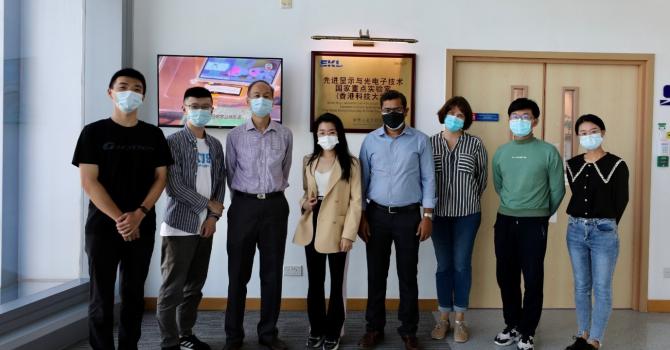ELEC Best Final Year Project/Thesis Awards 2019-20
The Champion - Zili TANG
"Integrated microlasers using a dye-doped polymer nano-printed by laser lithography" (Final Year Thesis)
Microlasers are useful in sensing and signal transmission. However, current microlasers are constrained to spherical or extruded 2D structures due to fabrication techniques, which limits their functionalities. Nano-level 3D printing is a new technology to solve this issue. In her thesis, Zili used 3D printing to fabricate spheres, cylinders and rotated polygon microlasers, and examined their performance under different experimental conditions. She also performed simulations to study the effect of surface roughness caused by 3D printing on the performance of microlasers. The study could offer guidance on the design and testing of future 3D-printed microlasers.
This thesis was supervised by Prof. Andrew POON.
The First Runner-Up - Chak Lam Jonathan CHAN, Yan Kei POON, Nicole Chee Lin YUEH
"Humanoid Robot Control" (Final Year Project)
This project demonstrates the development steps of a low-cost walking biped robot with the use of 3D printing, affordable servo motors, modelling and simulation. Three different kinds of control methods, including Linear Inverted Pendulum (LIP), Spring Linear Inverted Pendulum (SLIP) and reinforcement learning (RL), have been tested on a self-made parallel manipulator humanoid robot based on a design from Disney Research. The generated gaits of each method were later evaluated with simulations on Matlab and real-life implementation experiences. Under simulation environment, both LIP and RL have provided a satisfactory and stable performance in generating suitable gaits that can be applied to the robot in real-life testing.
This project was supervised by Prof. Ling SHI.
The Second Runner-Up - Yuanqiao LIN
"Cloud-Based Wireless Channel Characterizations" (Final Year Project)
With systems utilizing advanced wireless technology gaining popularity, a crucial factor to stable performance is obtaining accurate and reliable wireless channel characteristics such as signal strength information at different locations. In this project, a cloud-based approach is proposed to tackle this problem. First, Received Signal Strength Indicator (RSSI) collected with android phone app will be uploaded to cloud database. Then, the RSSI information of location points not measured is estimated using trained deep learning models. These models will consider base station locations, and the proximity to measured location points in making predictions. Finally, the resulting heatmaps can be visualized at mote devices.
This project was supervised by Prof. Vincent LAU.



